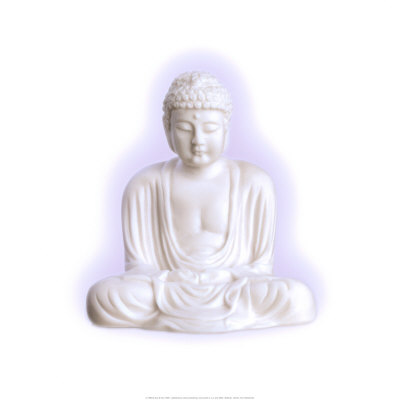

SOULFUL LIFESTYLES
Mindfulness
Concentration
Non_Reaction
(Equinimity)
Wise-Attention
(Understanding)
Mindfulness vs
Concentration
Meditation vs
Contemplation
The Subject or
Object of Meditation
The Prerequisites
for Meditation
The Ultimate
Human Skill
Daily Practice
FAQs
Lifestyle is the disciplinary-style of our day-to-day living. It is not a fashion but a “manner” a “method” of living a disciplined life.
In order to develop a Soulful lifestyle, we need to adapt five specific methods of disciplinary living: Physical purity, Contentment, Austerity, Self-study, and Surrender. These five specific lifestyles are unique because they directly support and strengthen the Soulful attitudes. The five Soulful attitudes and the five Soulful lifestyles together, serve as a strong foundation for a long, arduous, and upward journey of SOUL- empowerment.
SOUL Meditation for developing the Lifestyle of
Physical Purity
a. Remaining mindful of gastronomic “cravings” and other intoxicating desires,
Remaining mindful of gastronomic “cravings” and other intoxicating desires,
b. Not reacting to the physical sensations and feelings that arise from these cravings,
Not reacting to the physical sensations and feelings that arise from these cravings,
c. Giving wise-attention to their impermanent and impersonal nature, and
Giving wise-attention to their impermanent and impersonal nature, and
d. Concentrating on the benefits of physical purity and physical
Concentrating on the benefits of physical purity and physical
well-being.
The lifestyle of physical-purity has a huge potential for getting us out of our old harmful habit patterns or addictions such as smoking and drinking. This is especially true if we regularly practice SOUL Meditation for physical purity.
Whenever we feel like drinking alcohol, we should become aware of the physical sensations and feelings of craving and observe it without reacting. The first step is to become aware of our craving by becoming aware of those physical sensations and feeling. If we are not aware that we are craving a drink, then nothing is possible. Once we become aware of it, then we can simply observe the arisen craving until it passes away and thus avoid grabbing a drink. Because no craving or feeling lasts forever, we soon realize that the cravings arise due to old habit patterns, but they subside on their own if we do not react to them. We also give wise attention to our cravings, which means, we understand that the cravings are not only momentary and changing, but also impersonal. Through wise attention, we try to understand that there is no person, or being, or self that is craving but there is simply this craving (a physical-mental phenomenon) and that’s all there is. As we establish ourselves in giving wise-attention, we try to focus or concentrate on the benefits of physical purity and well-being. In this way, if we practice the SOUL Meditation, we can become free of all addictions. However, we should not expect results overnight. We have to understand that we are dealing with the “mind,” which means, we must remain patient and train consistently and ardently.
Other Daily Practices for Developing the Lifestyle of Physical Purity
This lifestyle involves keeping the outside and inside, especially the inside of our body, pure and clean. Physical purity comes from:
• Avoiding intoxicants such as alcoholic drinks, sodas, tea, coffee,
Avoiding intoxicants such as alcoholic drinks, sodas, tea, coffee,  etc because they not only harm the body but also imbalance the mind,
etc because they not only harm the body but also imbalance the mind,
• Not smoking and not abusing drugs because they lead to immense physical, physiological, and mental impurities,
Not smoking and not abusing drugs because they lead to immense physical, physiological, and mental impurities,
• Not consuming oily, fatty, and stale foods because they make body-mind dull and lethargic,
Not consuming oily, fatty, and stale foods because they make body-mind dull and lethargic,
• Not eating too much meat since it leads to the arousal of lust for food and sex,
Not eating too much meat since it leads to the arousal of lust for food and sex,
• Drinking lots of water and eating water-rich fruits to literally wash and clean the inside body.
Drinking lots of water and eating water-rich fruits to literally wash and clean the inside body.
SOUL Meditation for developing the Lifestyle of
Contentment
a. Remaining mindful of our goals, wants, desires, greed, etc
Remaining mindful of our goals, wants, desires, greed, etc
b. Not reacting to the sensations and feelings that arise from them,
Not reacting to the sensations and feelings that arise from them,
c. Giving wise attention to their impermanent and impersonal nature, and
Giving wise attention to their impermanent and impersonal nature, and
d. Concentrating on the benefits of contentment and the attainment of higher states.
Concentrating on the benefits of contentment and the attainment of higher states.
Whenever there is a desire or a want, we should become aware of it and then contemplate on its nature to find out whether it is a desire for wanting more of the same t
hing (greed) or a desire for excelling and improving. If there is an undercurrent of greed, then, we should simply observe the desire without reacting. We should then give wise attention to our desires and wants, which means, we should not only do a check on greed but also compare how we feel when we are greedy and when we are content. We should specifically become aware of how restless we feel when we are greedy and how peaceful we feel when we are content. We should reinforce this awareness so that we strive more to become content than to acquire or compete.
Ultimately, contentment comes only through the purifying effect of such a meditation and not by suppressing desires or by positively thinking about higher states. Positive thinking is a surficial, cosmetic treatment. It is surficial because it is only at thinking level and does not reach the depth of consciousness where the roots of greed are embedded. Therefore, it cannot remove greed from its roots. Only meditation (such as the SOUL Meditation described here) can reach the depth of consciousness by transcending surficial mental activities such as suppressing desires or positive thinking.
Other Daily Practices for Developing the Lifestyle of Contentment
• Not wanting more,
Not wanting more,
• Having fewness of wishes
Having fewness of wishes
Not wanting more or having fewness of wishes does not mean we should not have any goals. This also does not mean we should not strive for improvement. Our goal should be to strive for higher states rather than to strive for more and more of the same thing. If we are a millionaire, we should be content with that and not strive for becoming a multi-millionaire. Instead, we should strive for improvement in our skills, relationships, social involvements, spirituality, etc. These are higher states than money and things. Unless we are content with what we have, we cannot achieve higher states.
Having fewness of wishes is paramount for the training of meditation, because, it is very difficult to concentrate if we are constantly thinking about achieving this and achieving that, becoming this and becoming that. Also, when we are not content, our mind becomes greedy and simply wanders around like a monkey in search of something and simply cannot remain in the present moment. Moreover, if we are not content because of greed, we are more likely to lie or steal or even kill. Thus, the lifestyle of contentment directly supports and strengthens the five Soulful attitudes and greatly helps us in preparing for SOUL empowerment.
SOUL Meditation for developing the Lifestyle of
Austerity
a. Remaining mindful of desire for “more:” more things, more food,
Remaining mindful of desire for “more:” more things, more food, 
 more talk, more entertainment, more money, more space, more power, etc
more talk, more entertainment, more money, more space, more power, etc
b. Not-reacting to sensations and feelings that arise from such desires,
Not-reacting to sensations and feelings that arise from such desires,
c. Giving wise-attention to their impermanent and impersonal nature, and
Giving wise-attention to their impermanent and impersonal nature, and
d. Concentrating on the benefits of the after-effects of austerity such as wakefulness, alertness, energy, and sense of accomplishment.
Concentrating on the benefits of the after-effects of austerity such as wakefulness, alertness, energy, and sense of accomplishment.
Whenever there is a desire for “more,” become aware of it and observe it without reacting, i.e. don’t go for it. Simply keep observing the desire until it subsides on its own. While observing these desires without reacting, try to recollect benefits of austerity and compare those benefits to non-austere living. Such recollection and comparison will arouse energy for non-reaction and wise-attention.
Observe how great you feel whenever you succeed in not reacting to greed or desire for more. Observe how wonderful the after-effect is. While you are actually being austere, it may be painful or even distasteful (in the beginning); however, the after-effect is always good. You may find it hard to stop while eating even after your stomach is 70% full, but, if you stop anyways, you will later notice that you are more alert and energetic than before. Not only that, you will also notice a sense of accomplishment and a pleasant feeling of being an ascetic.
Austerity begets wholesome discipline. It also helps in minimizing the controlling and governing effects of immediate environment on our body and mind. It helps us stay awake, alert, and energetic. These qualities are necessary for having fun and maintaining the stamina while working hard, as well as for making one’s efforts noteworthy. Without such a combination of “fun-hard work-stamina-merit,” the training for SOUL empowerment does not last for long.
This lifestyle is basically a way of living which makes our SOUL journey enjoyable and noteworthy, and thereby speeds up the process of SOUL empowerment. Please note that I am using the word, “enjoyable” and not the word “painful” for defining the lifestyle of austerity.
Other Daily Practices for Developing the Lifestyle of Austerity
• Living with minimum means or resources so that there is neither physical torture nor indulgence but just the right amount of convenience and comfort,
Living with minimum means or resources so that there is neither physical torture nor indulgence but just the right amount of convenience and comfort,
• Living in a small house, neither too small to become crammed nor too big to be opulent,
Living in a small house, neither too small to become crammed nor too big to be opulent,
• Neither fasting too much nor overeating; Eating so that stomach always remains 30 percent empty,
Neither fasting too much nor overeating; Eating so that stomach always remains 30 percent empty,
• Speaking meagerly and sparingly, listening more, avoiding frivolous talks, useless discussions, criticism, etc,
Speaking meagerly and sparingly, listening more, avoiding frivolous talks, useless discussions, criticism, etc,
• Neither being miser nor being wasteful,
Neither being miser nor being wasteful,
• Avoiding noisy and crowded places,
Avoiding noisy and crowded places,
• Avoiding excessive or back-to-back entertainment,
Avoiding excessive or back-to-back entertainment,
• Spending more time in silence and seclusion,
Spending more time in silence and seclusion,
• Minimizing and eventually eliminating sexual activities, and
Minimizing and eventually eliminating sexual activities, and
SOUL Meditation for developing the Lifestyle of
Self-Study
a. Remaining mindful of one’s strengths and weaknesses
Remaining mindful of one’s strengths and weaknesses
b. Not-reacting to strengths or weaknesses, meaning, neither
Not-reacting to strengths or weaknesses, meaning, neither  becoming proud or over-confident nor discouraged or dispirited
becoming proud or over-confident nor discouraged or dispirited
c. Giving wise-attention to their impermanent and impersonal nature, and
Giving wise-attention to their impermanent and impersonal nature, and
d. Concentrating on consistent self-improvement and spiritual evolution.
Concentrating on consistent self-improvement and spiritual evolution.
Self-study is the first step towards developing the intellectual understanding of “who we are” and the world around us. This discussion we are having here is really part of the lifestyle of self-study. However, self-study should not be used for only intellectual development but also for developing awareness of all our actions and reactions so that our strengths and weaknesses can be revealed to us by us. When that happens, then and only then, we can utilize our strengths strategically and eliminate our weaknesses for our benefit and for the benefit of others.
Let us say, I have the weakness of blowing up when a particular argument, discussion or debate does not go my way. In this case, if I were to apply the discipline of self-study, it would mean, I first become aware of the fact that I am an angry person. Then, I contemplate the circumstances that led me to anger in the past (arguments, discussion or debates) so I know what triggers my temper. Once I become aware of my weakness and the triggers, then only I enter future debates. Also, during the argument, discussion or debate, I observe how unpleasant it feels when temper arises in me, how tiring it feels afterwards, how harmful it is and how I incur huge losses (if I lose temper) or benefits (if I don’t lose temper). Once the argument, discussion or debate is over, through wise-attention, I find out why I was angry, what caused it, and why and how it ended, what was that specific strength or quality which helped me end it, etc.
In this way, due to the application of the discipline of self-study, we can understand ourselves in terms of our strengths and weaknesses and avoid judging or evaluating or analyzing other people. In self-study, we are only studying ourselves and that is all. We are also studying the world, however only in relation to or relative to ourselves.
Many people never grow or evolve because they never make an effort to know who they are or what their weaknesses are. The lifestyle of self-study can help such people tremendously.
Knowing oneself through self-study is truly a giant initial step towards removing the hindrances of anger, sensual pleasures, gross delusion, and laziness. When these hindrances are removed through self-study, our spiritual evolution automatically leads us towards four divine qualities of loving-kindness, compassion, gladness and equanimity. Development of these divine qualities is critical for assuring the success in the process of SOUL empowerment. (See “The Elements of LOVE” )
Other Daily Practices for Developing the Lifestyle of Self-Study
This lifestyle is the underlying theme for all wholesome doing, studying, experimenting, and learning. It is developed by:
• Studying philosophical, psychological and spiritual literature, studying with spiritual teachers, interacting and spending time with refined studious people,
Studying philosophical, psychological and spiritual literature, studying with spiritual teachers, interacting and spending time with refined studious people,
• Watching, reading, or listening only for the purpose of learning and applying it to study oneself and the surrounding world as it relates to us,
Watching, reading, or listening only for the purpose of learning and applying it to study oneself and the surrounding world as it relates to us,
• Making oneself a laboratory for experimenting and thereby learning about oneself and the world,
Making oneself a laboratory for experimenting and thereby learning about oneself and the world,
• Studying the causes of our actions, the effects of our reactions, and their inherent nature,
Studying the causes of our actions, the effects of our reactions, and their inherent nature,
• Using all actions, all experiences to know ourselves,
Using all actions, all experiences to know ourselves,
• Always experimenting with what is learned, putting it to the test, contemplating, and learning from the results to know oneself at deeper and deeper levels,
Always experimenting with what is learned, putting it to the test, contemplating, and learning from the results to know oneself at deeper and deeper levels,
• Accepting facts about oneself only based on the results of studying, experimenting, and reflecting upon the results, contemplating about the cause-effect relationships,
Accepting facts about oneself only based on the results of studying, experimenting, and reflecting upon the results, contemplating about the cause-effect relationships,
• Never accepting facts about oneself out of tradition, emotion, devotion, blind faith, beliefs, etc.
Never accepting facts about oneself out of tradition, emotion, devotion, blind faith, beliefs, etc.
SOUL Meditation for developing the Lifestyle of
Surrender
a. Remaining mindful of the Law of Karma or the Laws of the Universe and their perfect accounting capability,
Remaining mindful of the Law of Karma or the Laws of the Universe and their perfect accounting capability,
b. Not-reacting to feelings of unfairness, injustice, heaviness, rigidity or to our tendencies of judging, fighting, resisting, etc,
Not-reacting to feelings of unfairness, injustice, heaviness, rigidity or to our tendencies of judging, fighting, resisting, etc,
c. Giving wise-attention to the impermanent and impersonal nature of such unwholesome feelings and tendencies, and
Giving wise-attention to the impermanent and impersonal nature of such unwholesome feelings and tendencies, and
d. Concentrating on the beauty and power of surrender, on carefreeness, and peacefulness.
Concentrating on the beauty and power of surrender, on carefreeness, and peacefulness.
Whenever there is a feeling of unfairness, injustice, heaviness, rigidity, etc in us, we should become aware of it and observe these feelings without reacting. We should recollect the principle of surrender, concentrate on it and then notice how these unwholesome feelings eventually die out. Whenever there is a tendency to be hypocritical, forceful, judging, etc, we should become aware of it and observe it without reacting. We should immediately surrender to the Laws (of Karma), which means, we should let Karma or the Universe handle the task of giving justice. We should then notice how quickly the unwholesome tendencies (of fighting for justice or fairness or judging) begin to lose strength and how light and malleable we begin feeling in our body and mind.
Surrendering in this way has profound effect on our being. It generates detachment, impartiality, lightness, straightforwardness, faithfulness, flexibility, and non-resistance. All these qualities facilitate the effortlessness in our action and eventually, due to surrendering, we become peaceful and carefree.
Let us say, you are deceived by a friend in a business deal. In a situation like this, if you are surrendering, it does not mean you will simply abandon or overlook what your friend did. Also, you will not say, “let me not worry, let me not fight for justice because the Universe (or Karma) will judge him and he will be punished fairly.” This will not be in the spirit of surrender. If you are rightfully surrendering, what you will do is, you will recollect the Law of Karma and you will understand that, due to unwholesome actions, the Law of Karma will generate unwholesome fruits (suffering) for your friend. Due to such understanding, a sense of compassion will then arise in you for your friend, because, you will know for sure that your friend is going to suffer as a result of his unwholesome actions. Due to this compassion arising out of surrender, you will feel light, peaceful, and at ease. You will notice that it is “compassion” (and not a sense of “getting justice or getting even”) which results in lightness, peacefulness, and ease. However, for this to happen, you will have to firmly establish yourself in surrendering to the Ultimate Law of Karma. Your faith in the Ultimate Laws should be unshakable.
In many spiritual traditions, the ultimate laws of the universe are misunderstood as “Personal God” and surrendering is misunderstood as “surrendering to Personal God.” This is truly a misunderstanding, because, the act of surrender is not something that happens between two entities like us and God. The act of surrender is absolute. If we imagine that we are surrendering to some Judging God, then we are simply shifting the ego or passing on the burden. In surrender, there has to be absolute letting go of everything: the judge, the one who is being judged, and the judgment. In surrender, there is no desire or wish for justice. Instead, there is forgiveness. There is this absolute letting-go based on the understanding of the ultimate laws of the universe.
Other Daily Practices for Developing the Lifestyle of Surrender
• Laying down the arms and non-resisting,
Laying down the arms and non-resisting,
• Freeing oneself from the burden of judging,
Freeing oneself from the burden of judging,
• Freeing oneself from the burden of fighting for justice,
Freeing oneself from the burden of fighting for justice,
• Developing trust in the fairness and justice provided by the Law of Karma (or the ultimate laws of the universe such as causation, karma, conditionality, etc)
Developing trust in the fairness and justice provided by the Law of Karma (or the ultimate laws of the universe such as causation, karma, conditionality, etc)
• Surrendering to the Law of Karma, meaning, surrendering to the ultimate laws of the universe. These laws rule the universe with perfection and account for everything. Therefore, there is no need to fight for fairness and justice. There is no need to resist the forces. There is no need to judge oneself or others. The perfect universal laws take care of all that. We simply have to trust the laws. We have to simply perform our actions in accordance with the five Soulful attitudes and five Soulful lifestyles and leave the rest to the Laws;
Surrendering to the Law of Karma, meaning, surrendering to the ultimate laws of the universe. These laws rule the universe with perfection and account for everything. Therefore, there is no need to fight for fairness and justice. There is no need to resist the forces. There is no need to judge oneself or others. The perfect universal laws take care of all that. We simply have to trust the laws. We have to simply perform our actions in accordance with the five Soulful attitudes and five Soulful lifestyles and leave the rest to the Laws;
FAQs
It has been very interesting to hear about the five attitudes and five lifestyles. My question is, why only these attitudes and lifestyles? Why not something else?
These specific attitudes and lifestyles are fundamentally rooted in the elements of Non-greed, Non-hatred, and Non-delusion. Therefore, they result in the most efficient “shake-up” and subsequent “loosening” of the grip of ego because ego is withheld, strengthened, and protected by Greed, Hatred, and Delusion. Unless these three prime unwholesome root elements are shaken and loosened up, we cannot pull them out of their roots which are embedded in our consciousness. Pulling of these unwholesome roots out of the field of consciousness is essential for building a foundation for SOUL empowerment. What I am basically saying is that the attitudes and lifestyles which we have discussed here, if practiced ardently and diligently, build a base and pave the way for further, more subtle and intensive spiritual training.
The ten acts of lying, killing, stealing, sexual misconduct, overindulging, impure living, discontentment, lack of austerity, lack of self-study, judging-fighting-lack-of-surrender (the ten exact opposites of Soulful attitudes and lifestyles) most significantly contribute to the building and strengthening of unwholesome mind. These ten unwholesome acts also hinder the development of meditativity by creating huge stocks of harmful memories (karmic impressions). These memories come up to the surface during meditation and disturb our attention. It takes significant and prolonged efforts to then eradicate these memories. Therefore, these ten acts are most unprofitable from a spiritual standpoint. They bring about the biggest loss and the highest fall. That is why; we train for the five specific Soulful attitudes and the five specific Soulful lifestyles.
The more we are trained in these attitudes and lifestyles, the better we can meditate; and, the more we meditate, the better we establish ourselves in these attitudes and lifestyles. For example, let us look at “Truthfulness.” It is obvious that I will not lie if: 1. I am aware of what I am saying; 2. Non-reactive to conditions that may be forcing me to lie; 3. Wisely-attentive to impermanent and impersonal nature of external conditions and feelings, and 4. Concentrating on truthfulness. Thus, when I make an effort to not lie, I am actually meditating at some level. Because I am meditating, it improves my meditativity. This improvement, in turn, helps me remain truthful in more and more challenging situations.
Developing these Soulful attitudes and lifestyles, are they same as developing morality?
First of all, let me say that the five Soulful attitudes and five Soulful lifestyles together make up the ten most important “spiritual virtues.” Please note that I am using the word “virtues” and not ‘moral laws.”
If spiritual virtues are considered to be moral laws, they lose their real power which is to develop meditativity. Even though practicing of these virtues definitely makes us happy, healthy and powerful, these are not our goals. These are nice things that happen on the way. Our ultimate goal is the empowerment of SOUL which can happen only through established meditativity. The ten spiritual virtues are only means to achieve this goal. Therefore, we should not turn them into the doctrine of morality, spiritual commandments, etc.
I am somewhat confused. I thought virtues are same as moral values (morality)?
No. Virtues are not same as moral values but much more than that. The basic element of virtue is the volition for purification and nobility.
Let us talk about the virtue of “Truthfulness” for example. Truthfulness is a virtue. However, just because I don’t lie does not necessarily mean I am virtuous. I may not lie out of fear of perjury or godly punishment or fear of some loss or expectation of some gains. If I don’t lie due to any of these mundane reasons, I may be called self-disciplined and moral, but not virtuous. If I don’t lie because lying leads to impurity, unwholesomeness, loss of merit, and loss of concentration, then only I may be called virtuous.
A self-disciplined and moral person can be arrogant, self-serving, rigid, or even an extremist (like some of the religious people are). On the other hand, a virtuous person is composed, blameless, and sagacious. He is calm and cool in all his actions because he avoids all extremes. In this sense, being virtuous basically means being wise and spiritual, and not being self-disciplined, moral, or religious.
I wonder, up to what extent, I can apply these virtues in the real world which is fraught with greed, hatred, competition, winning mentality, etc. Is it really possible to remain truthful in every situation? Sometimes, it could be extremely unfair, even suicidal.
Only common ordinary people think in terms of mundane parameters such as fairness, survival, material prosperity, name, fame, etc. Soulful attitudes and lifestyles are not for such people, but only for those who think and want to live in the “supramundane” mode. It is only for those people who want to live a virtuously extraordinary life.



Copyright 2008 SOUL Research Institute
C

SOUL RESEARCH INSTITUTE
719-685-6294, 719-488-0548, 303-507-5169

Meditations
for
developing
SOULFUL
LIFESTYLES
M6
M7
M8
M9
M10

